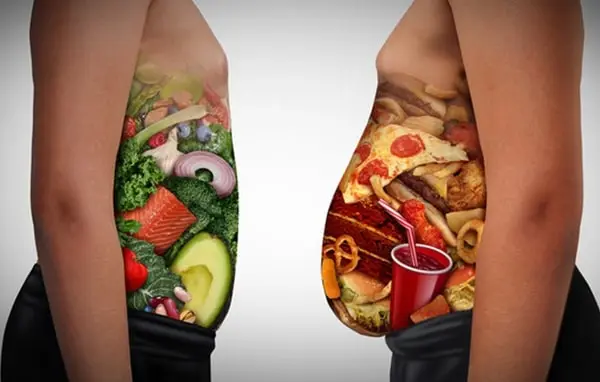What is Gastric Sleeve Recovery Time Like?
What is Gastric Sleeve Recovery Time Like?
Weight-loss surgery is start of lifelong changes in diet, lifestyle
The bariatric procedure, and weight-loss surgery, is only the beginning of the change in diet and the change in lifestyle after the procedure. Weight loss is permanent, and it’s an ongoing process. Immediately after the surgery, patients must adjust to a two-phase, 20-day postoperative eating plan that’s divided into the « clear liquid/diet » and « full liquid/diet » categories. The ingredient list of permitted clear liquids includes broths, such as chicken, beef, or vegetable; low-sugar, low-fiber, high-protein drinks, such as those found in the Premier Protein beverage lineup and UnJury protein mix; sugar-free Jell-O; and water with added Propel Zero or Crystal Light powdered flavors to help stave off thirst. Broth-based soups and protein drinks also serve as ingredients for full liquids, as do beverages such as organic vanilla low-fat milk and beverages like the Odwalla Chocolate Soy All-Protein Shake. In the « pureed/soft solids phase, » patients can eat oatmeal, hummus, cottage cheese, smoothie bowls prepared with protein powders and unsweetened frozen fruit.
Who is a candidate for gastric sleeve surgery?
Individuals for whom bariatric surgery is considered appropriate are typically those for whom an operative risk-benefit analysis suggests net benefit will most likely be bestowed. As such, preliminary evaluation for bariatric surgery is directed toward two components: initial determination of those for whom bariatric surgery is appropriate, known as candidate selection, and determination of an optimal bariatric procedure in an appropriate surgical candidate, known as procedure selection. A history of obesity-related disease, such as type 2 diabetes, sleep apnea, hyperlipidemia, hypertension, or an obesity-related nonalcoholic steatohepatitis (NASH) hepatitis, may be taken into consideration, as may failure of nonoperative attempts, such as changes in dietary habits, exercise patterns, and behavioral interventions at weight loss, particularly a reduction in the patient’s body mass index (BMI), when selecting bariatric surgery candidates.
How does gastric sleeve surgery work?
The gastric sleeve procedure is also called sleeve gastrectomy. The surgery is performed using a laparoscope, a long tube-like instrument with a light and a camera, which is connected to a video monitor. The surgeon makes 3 to 5 small incisions on the belly and performs the operation from outside of the body using long-handled instruments. A sleeve gastrectomy is performed in the hospital under general anesthesia. Usually, after the operation, patients remain in the hospital for 2 to 3 days. Many surgical staples are used to divide the stomach. By the end of the procedure, about 80% of the stomach is removed, leaving a portion that is long and narrow and about the size of a banana. Since the nerves to the stomach and the outlet valve are not removed, the advantage of this operation is that the patient’s ability to tolerate a full meal is better than with a similar malabsorptive operation. The disadvantage is that it is a non-reversible operation, and some patients may have dietary restrictions. The remaining portion of the stomach in a sleeve gastrectomy makes less ghrelin, and as a result, the patient is less hungry.
What is gastric sleeve recovery like?
Most people who had a gastric sleeve have to stay in the hospital for two to three days. It varies based on your recovery process and overall health.On average, patients lose 60 to 70 percent of the weight they need to lose. You may lose much more. Another benefit is that after the first year or two, some people are able to eat more. However, if you try to eat like you did before surgery, you’re likely to regain weight. About 10 to 20 percent of people need follow-up surgery to get rid of extra skin. Your stomach will also stretch out some over time. It’s important to follow a sensible diet and exercise plan to help prevent regaining weight.
A few days after your surgery, you’ll be allowed to start drinking water and clear liquids. In a month or so, you’ll move on to soft foods. Every patient’s weight loss will be different. Even though you won’t be able to eat much at first, you’ll still need to learn good eating habits to promote weight loss. Take time to chew thoroughly and eat slowly. It may help to avoid foods high in fiber, like raw vegetables, because they’re hard to digest.

Gastric sleeve recovery at home
When you return home from your gastric sleeve procedure, you need to practice good self-care to ensure that you have the best possible recovery experience. Your customized care plan may include special instructions or restrictions, activities and medication schedules provided by your bariatric surgeon and the hospital’s medical team. When you’re back at home, you should follow a special meal schedule that includes a progression from clear fluids to full fluids, pureed or blended foods, and then finally solid food about 6 weeks post-op. Your specific diet plan may be slightly different, so be sure to follow the guidelines and instructions from your bariatric surgeon. This is super important, as straying from your doctor-ordered schedule too early could cause trauma to your stomach and ruin your recovery. Plus, you also risk OG (original gangsta) weight-related complications setting in, which is a huge no-no.
Your gastric sleeve recovery will depend on several factors, including your age, overall health pre-surgery, how well you follow your doctor’s instructions, and how well you manage your diet after your gastric sleeve. For example, an active person with a healthy lifestyle may recover in just 2-3 weeks, while someone older who’s not in the best of shape may take 1-3 months to heal completely and experience normal hunger and energy levels. Most people that undergo gastric sleeve surgery are able to work again after about 2-3 weeks, but hey, it’s a good idea to wait until you can at least eat soft solid foods because that’s when you’ll really have your energy levels back.
Ensuring long-term weight loss
It is important to understand the difference between unhealthy calories and calories that are nutritional and promote good health. During the initial months post-surgery, most bariatric patients are highly conscious of the quantity of food and drinks they consume. It can be easy to overindulge in beverages or eat past the point of comfort, both of which can lead to vomiting. While the feeling after eating one bite is « fullness, » trying to eat 3 calorie-dense bites can lead to a sensation of discomfort and nausea characterized as « binge eating. » After having eaten inappropriate food post-surgery, most patients will learn what alcohol and liquids are not allowed after surgery and they are likely to respect these rules, as the physical reaction to inappropriate food can be punishing.
Bariatric diets promote weight loss and long-term health due to the limited quantity of food that can be consumed and the lifestyle choices that can be formed. A proper diet is also important in preventing some of the main disadvantages of gastric sleeve surgery, such as vomiting, nutritional deficiencies, and reflux, while also promoting weight loss. The fact that a large portion of the stomach is removed is a restriction in the « quantity » of food because the patient can only consume a handful, and in some cases a cup, of food instead of a bigger portion.
Weight loss is most successful after gastric sleeve surgery when proper bariatric diets are followed. Bariatric diets are pre-designed eating plans for patients who have undergone bariatric surgery and are often written by certified nutritionists who understand the needs of a post-bariatric patient. These diets are appropriate for certain recovery periods post-surgery and also promote long-term health and prevention of complications. The main phases of the bariatric diet post-gastric sleeve are: Clear Liquids (between Day 1 and 2), Full Liquids (between Day 1 and 14), Pureed Foods (between weeks 3 and 4), and Regular Foods (beginning week 5).

